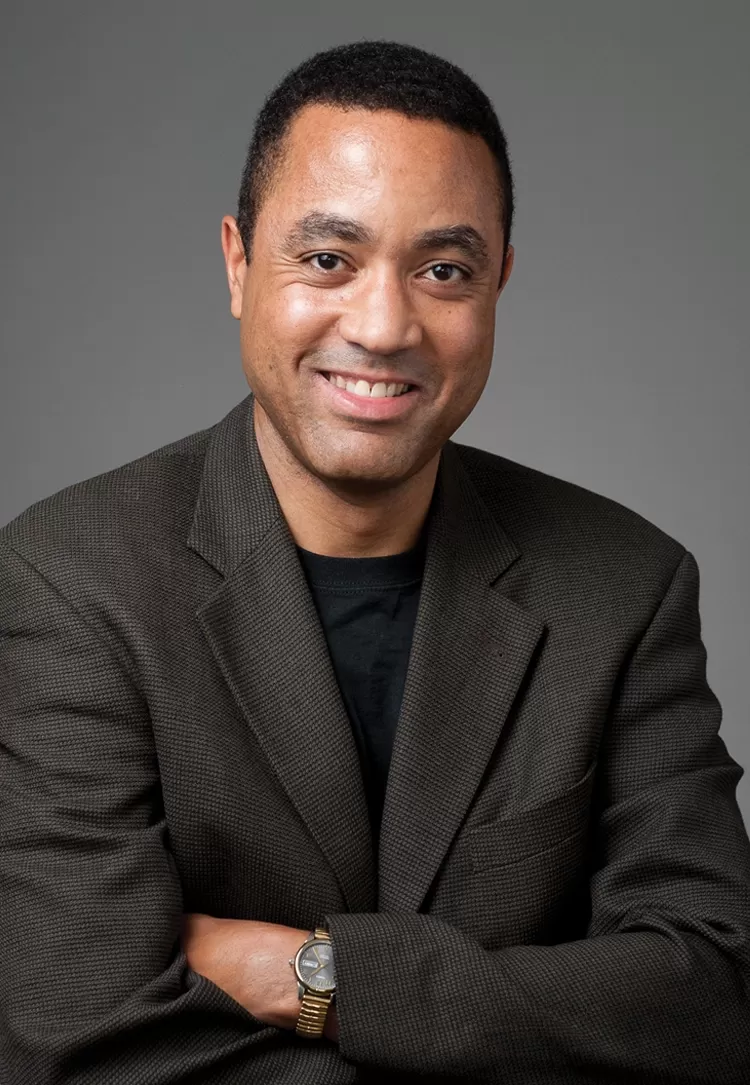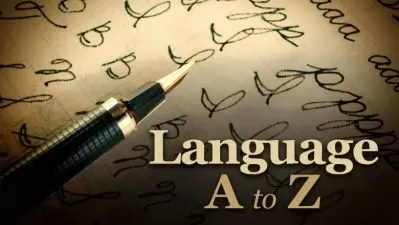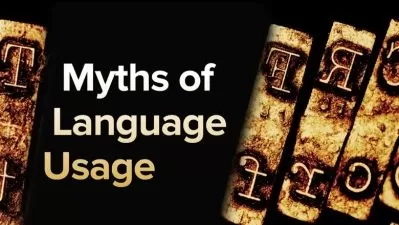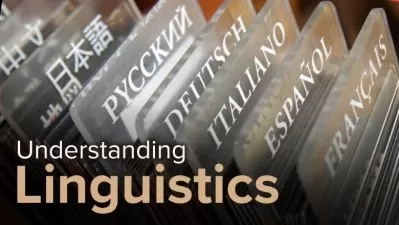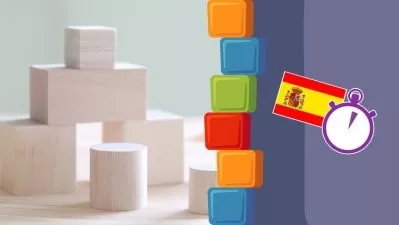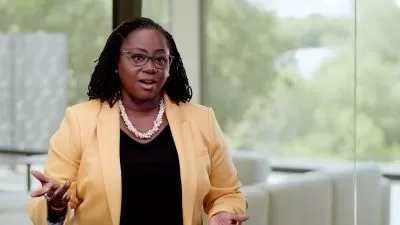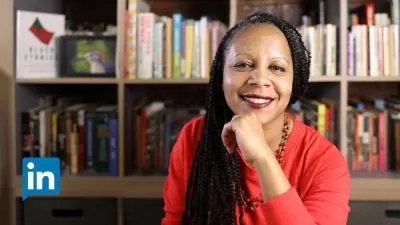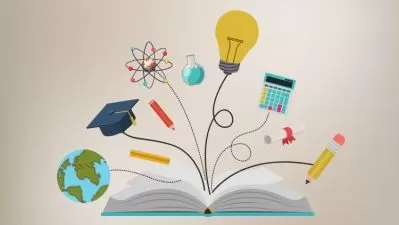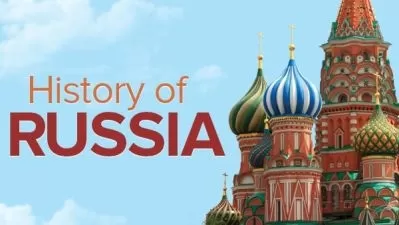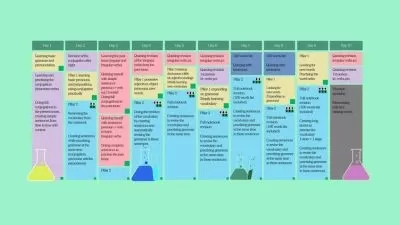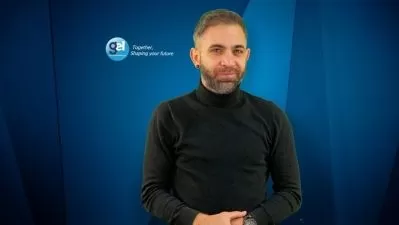Story of Human Language
John McWhorter
18:03:29
Description
I never met a person who is not interested in language, wrote the bestselling author and psychologist Steven Pinker. There are good reasons that language fascinates us so. It not only defines humans as a species, placing us head and shoulders above even the most proficient animal communicators, but it also beguiles us with its endless mysteries. For example:
- How did different languages come to be?
- Why isn't there just a single language?
- How does a language change, and when it does, is that change indicative of decay or growth?
- How does a language become extinct?
An accomplished scholar, Professor McWhorter is also a skilled popularizer, whose book The Power of Babel was called "startling, provocative, and remarkably entertaining," by the San Diego Union-Tribune.
The London Times called him "a born teacher." And Steven Pinker, best known as the author of The Language Instinct, offered this praise for the book: "McWhorter's arguments are sharply reasoned, refreshingly honest, and thoroughly original."
Discover How Linguists Think
For the past century linguistics has been one of the most exciting and productive fields in the social sciences. In the process of telling the story of language, Professor McWhorter introduces you to some of the current controversies in the discipline:
- Noam Chomsky has famously argued that the ability to use language is innately specified in the human brain. What is the evidence for and against this hypothesis?
- The popular media have widely reported that words from the world's first language have been reconstructed. Professor McWhorter looks at the reasoning behind this work and the objections to it.
- One of the most enticing ideas of 20th-century linguistics is that language determines the way we perceive the world. But is this really true?
- The Ebonics debate of the mid-1990s focused attention on Black English. What is the nature of this dialect? Where did it come from?
In discovering how linguists think, you will begin to see language in an entirely new way. You will learn that everything about a language is eternally and inherently changeable, from its word order and grammar to the very sound and meaning of basic words.
That's why Professor McWhorter describes language as "like one of those lava lamps from the 1970s. It's not marching toward an ideal, and it's not slowly going to the dogs. It's always just variations of the same thing—endless morphings."
A Wealth of Examples from a Teacher Passionate about Language
In an interview with the New York Times, Professor McWhorter said: "Languages have been a passion since I was a small child. I used to teach them to myself as a hobby. I speak three and a bit of Japanese, and can read seven."
In this course, he includes these languages and many more as examples. Anyone who has ever studied a language will surely find it discussed—along with Albanian, Armenian, Turkish, Sanskrit, Mandarin, Cantonese, Tibetan, Korean, Tagalog, Maori, Fijian, Samoan, Gullah, Hopi, Mohawk, Navajo, Yupik Eskimo, Quechua, and Welsh, as well as Latin, Greek, German, Russian, French, Spanish, Swedish, and many others.
It's remarkable how much light one language sheds on another. For example, the ancestor language of English is Proto-Germanic, and the ancestor of that is Proto-Indo-European. A curious transformation took place in the consonants of Proto-Germanic, in which Proto-Indo-European p became f; d became t; and so on with other consonant pairs. So Latin pater is English father, and Latin decem is English ten. This rule is called Grimm's Law after its discoverer—the same Jacob Grimm who collected folk tales.
Such patterns make relationships among different languages clear and make learning these languages much easier.
What You Will Learn
Language basics. In Lecture 1, you start by comparing human language to animal communication and ask, how valid are claims that animals such as chimpanzees have rudimentary language skills? Then you look at intriguing evidence that links a specific gene to the ability to use language. The first appearance of this gene in humans has been calculated and gives a surprisingly early date for the birth of language.
Chomsky's revolution. In Lecture 2, Professor McWhorter notes that linguists are often mistakenly thought to be translators or experts on word histories. But their work takes them far deeper into language. For example, Noam Chomsky and his coworkers have been searching for the grammatical properties common to all languages—an effort that has revolutionized linguistics, though not without controversy.
Change is the norm. In Lectures 3–7, you learn the specific mechanisms responsible for language change, from phenomena such as the tone system in Chinese to the gradual shift in the meanings of words over time. You will find that even the parts of Shakespeare you believe you understand may not mean what you think.
Beginnings. In Lectures 8–13, you explore language families, starting with Indo-European, comprising languages from India to Ireland including English. Other language families discussed are Semitic, Sino-Tibetan, Austronesian, Bantu, and Native American. You also look at the heated debate over the first language.
Dialects. In Lectures 14–19, you cover dialects. Often one dialect is chosen as the standard, and when it is used in writing, it changes more slowly than the dialects that are just spoken. One consequence is that people who speak written languages are often taught that the constructions they produce spontaneously are errors.
Mixing it up. In Lectures 20–22, you study the phenomenon of language mixture. The first language's 7,000 branches have not only diverged into dialects, but they have been constantly mixing with one another on all levels: vocabulary, grammar, syntax, and usage. As a result, English comprises a vocabulary of largely borrowed terms.
How English got that way. In Lectures 23–25, you learn how processes of change lead some languages to develop more grammatical machinery than they need, while others become streamlined, shedding such complexities. English is an interesting example of the latter tendency.
Prisoner of grammar? In Lecture 26, you examine the famous Sapir-Whorf hypothesis, which proposes that features of our grammars channel how we think.
New languages from old. In Lectures 27–32, Professor McWhorter focuses on pidgins and creoles. When people learn a language quickly without being explicitly taught, they develop a pidgin version of it. Then if they need to use this pidgin on an everyday basis it becomes a real language, a creole. Some people argue that Black English is a creole, and Professor McWhorter devotes a lecture to this issue.
Extinction. In Lectures 33 and 34, you come full circle. Having explored the processes that give birth to new languages, you now learn how languages become extinct and what can be done to preserve them.
Conclusion. In Lectures 35 and 36, you explore artificial languages, including Esperanto and sign languages for the deaf, and conclude by examining a single English sentence etymologically. In the process, you learn how word histories reflect the phenomena of language change and mixture worldwide.
The Armory of the Mind
Professor McWhorter covers a wealth of material, enlivened with wit and personal observations:
- Concerning Shakespeare's language, he points out that the Tin Man in The Wizard of Oz sings Juliet's line "Wherefore art thou Romeo?" in a cadence that suggests "where" as the meaning of wherefore. But in Elizabethan usage, wherefore means "why."
- Discussing the concept of language as a continuum, he recalls getting into an elevator with two Guyanese linguists. The Guyanese were speaking English in the lobby, but as they ascended they started introducing more and more of their native creole, so by the time they exited, their conversation was incomprehensible to Dr. McWhorter.
- On the subject of sound change, he observes that the written syllable aw is pronounced ah by an increasing number of Americans, a phenomenon he first noticed in California. "Sushi is ‘raw' fish," he says. "But more and more people are saying, ‘rah' fish."
- A devotee of the classic British comedy series Are You Being Served?, he enthusiastically recommends it for its generous sampling of nonstandard British accents.
More details
User Reviews
Rating
John McWhorter
Instructor's Courses
The Great Courses
View courses The Great Courses- language english
- Training sessions 36
- duration 18:03:29
- Release Date 2023/05/11





